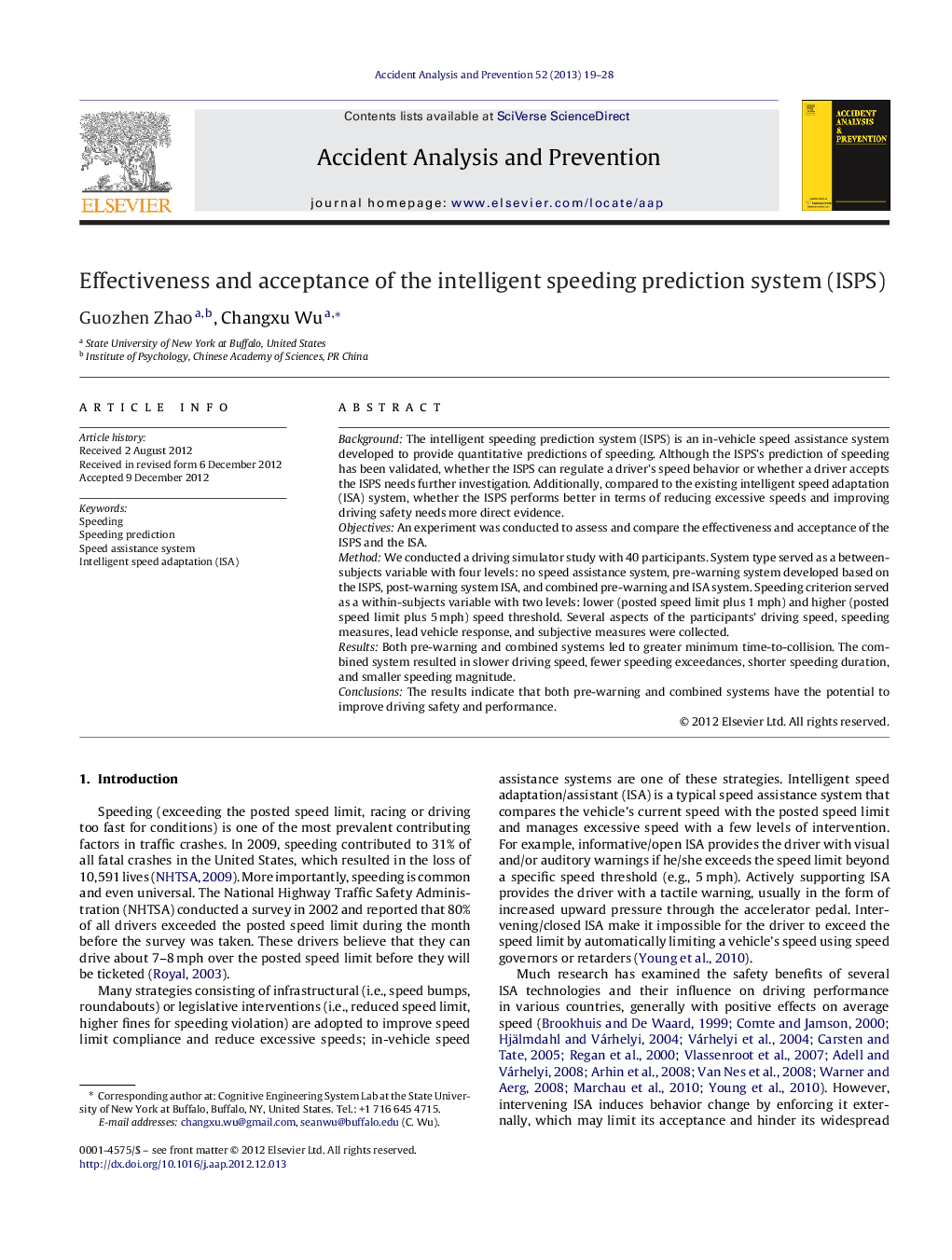| کد مقاله | کد نشریه | سال انتشار | مقاله انگلیسی | نسخه تمام متن |
|---|---|---|---|---|
| 572539 | 1452945 | 2013 | 10 صفحه PDF | دانلود رایگان |

BackgroundThe intelligent speeding prediction system (ISPS) is an in-vehicle speed assistance system developed to provide quantitative predictions of speeding. Although the ISPS's prediction of speeding has been validated, whether the ISPS can regulate a driver's speed behavior or whether a driver accepts the ISPS needs further investigation. Additionally, compared to the existing intelligent speed adaptation (ISA) system, whether the ISPS performs better in terms of reducing excessive speeds and improving driving safety needs more direct evidence.ObjectivesAn experiment was conducted to assess and compare the effectiveness and acceptance of the ISPS and the ISA.MethodWe conducted a driving simulator study with 40 participants. System type served as a between-subjects variable with four levels: no speed assistance system, pre-warning system developed based on the ISPS, post-warning system ISA, and combined pre-warning and ISA system. Speeding criterion served as a within-subjects variable with two levels: lower (posted speed limit plus 1 mph) and higher (posted speed limit plus 5 mph) speed threshold. Several aspects of the participants’ driving speed, speeding measures, lead vehicle response, and subjective measures were collected.ResultsBoth pre-warning and combined systems led to greater minimum time-to-collision. The combined system resulted in slower driving speed, fewer speeding exceedances, shorter speeding duration, and smaller speeding magnitude.ConclusionsThe results indicate that both pre-warning and combined systems have the potential to improve driving safety and performance.
► Traditional intelligent speed adaptation (ISA) provides warning messages after a driver exceeds speed limit.
► Intelligent speeding prediction system (ISPS) provides quantitative predictions of speeding before speeding occurs.
► The ISPS, ISA, and combined ISPS and ISA system reduced average driving speeds and increased speed limit compliance.
► The ISPS and combined system led to greater minimum time to collision.
► Drivers reported that the combined system was much more useful and satisfactory than the ISPS.
Journal: Accident Analysis & Prevention - Volume 52, 28 March 2013, Pages 19–28